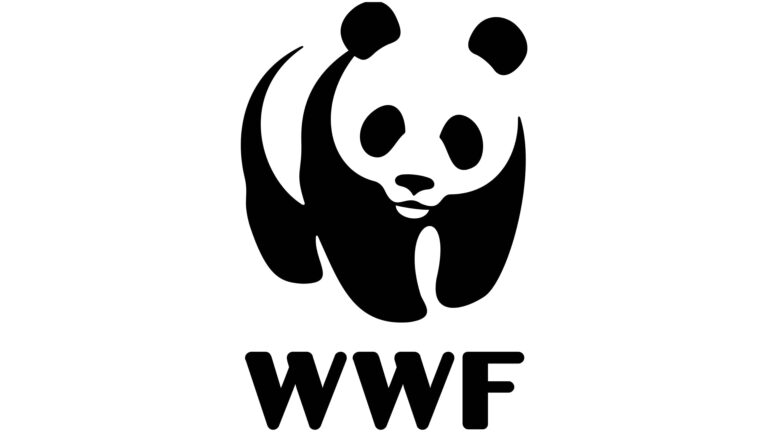A Message From WWF's CEO, Carter Roberts - Provided by WWF

With each passing day, we are learning how to grapple with the new reality brought on by the global COVID-19 pandemic. All of us have seen our lives transformed by social distancing, a halt to public gatherings and conferences, and the mandatory closing of many businesses that our communities hold dear. We all continue to cope in our own ways, while also seeking to retain some sense of normalcy in this extraordinary time.
My thoughts and gratitude go out to you, our partners, and to those providers on the front lines of essential services—doctors, nurses, health care workers, leading businesses and small business owners and individuals who ensure that our families can receive what they need.
And in the midst of these extraordinary times, the work of conservation goes on.
WWF’s network of critical programs around the world continues to move forward. Like many of you, we are connecting with partners and each other via video conferences, messaging apps, and phone calls. And as best we can, we continue our work with governments and institutions and other partners to safeguard landscapes and protected areas that are fundamental to the provision of food, water, and livelihoods to some of the most fragile communities around the world. We are learning to navigate a new normal, as you likely are, and extending each other the kindness and flexibility we all need right now.
We’re committed to staying in touch with you, to provide tools for education and entertainment, like those you may have seen in Jessica’s email last week. If you’re a parent now home with school-age children, or a teacher developing remote learning plans, you can access free educational resources from WWF’s Wild Classroom. Our WWF Together app lets you learn about 16 featured species. For those looking to fill long hours by binge-watching Netflix’s Our Planet series—created in collaboration with Silverback Films and WWF—offers eight hour-long episodes and a companion website at OurPlanet.com. And the entire archive of WWF’s World Wildlife magazine is available for free online—offering a rich array of stories from our work with people, landscapes, and species across the globe.
We offer these resources to help us remember the glory of this planet that sustains us, the sublime interconnections between people and nature, and the inspiring stories of individuals who have done great things for their communities and for the world. We need these stories, and these touchstones, more than ever.
This is also a moment when we even more profoundly realize the connections between nature and human health. Questions remain about the exact origins of COVID-19, but the World Health Organization has confirmed it is a zoonotic disease, meaning it jumped from wildlife to humans.
This comes as no surprise. Many recent disease outbreaks, including SARS and Ebola, followed this same arc. A confluence of human expansion, vanishing natural habitat, and climate change has driven people and wildlife into closer proximity, increasing the risk of outbreaks like this. The global illegal wildlife trade, which finances the killing and consumption of hundreds of thousands of animals each year, has long been seen as a potential accelerator for the spread of infectious diseases to people.
As we respond to this crisis, it’s imperative to take measures to prevent one root cause of potential future pandemics. Some obvious first steps include the following. Governments should commit to shutting down the illegal wildlife trade and back it up with meaningful enforcement measures. We all need to take robust steps to reduce consumer demand for illegal and unsustainable wildlife products. To that end, WWF is partnering with public and zoonotic health experts to build a coalition advocating for the immediate and permanent closure of illegal and unregulated wildlife markets throughout Asia. Our offices in the Mekong region are already reaching out to public health and environment ministries, as well as partners across civil society, to mobilize strong action. And in the coming weeks, we’ll be sharing findings from a survey we commissioned this month asking 5,000 consumers across Asia for their opinions on government action to close illegal and unregulated markets to protect public health.
More broadly, thanks to your support, we continue to influence conservation and climate change policies, and to conserve landscapes and seascapes, across the board, from the Amazon, to the Congo, to the coral reefs of the Pacific, to the Mekong and to the Northern Great Plains here at home. We seek to conserve these places not just because of the sanctuary they provide wild animals, but also because of the services they provide to people—stabilizing climate, providing food and water, and diminishing some key vectors to the spread of disease.
And finally, it’s worth remembering that the balm nature provides is never more important to our physical and mental health. Being outside is one of the few activities we can safely pursue during this global pandemic. I see the power of nature all around me now—whether hiking with my family in a park or tending our home garden. I hope you’ll take time to do the same, in whatever way you can.
We are in this together. May we emerge with a renewed devotion to each other and respect for the planet we call home.
Take good care,
Carter Roberts
Source: World Wildlife Fund